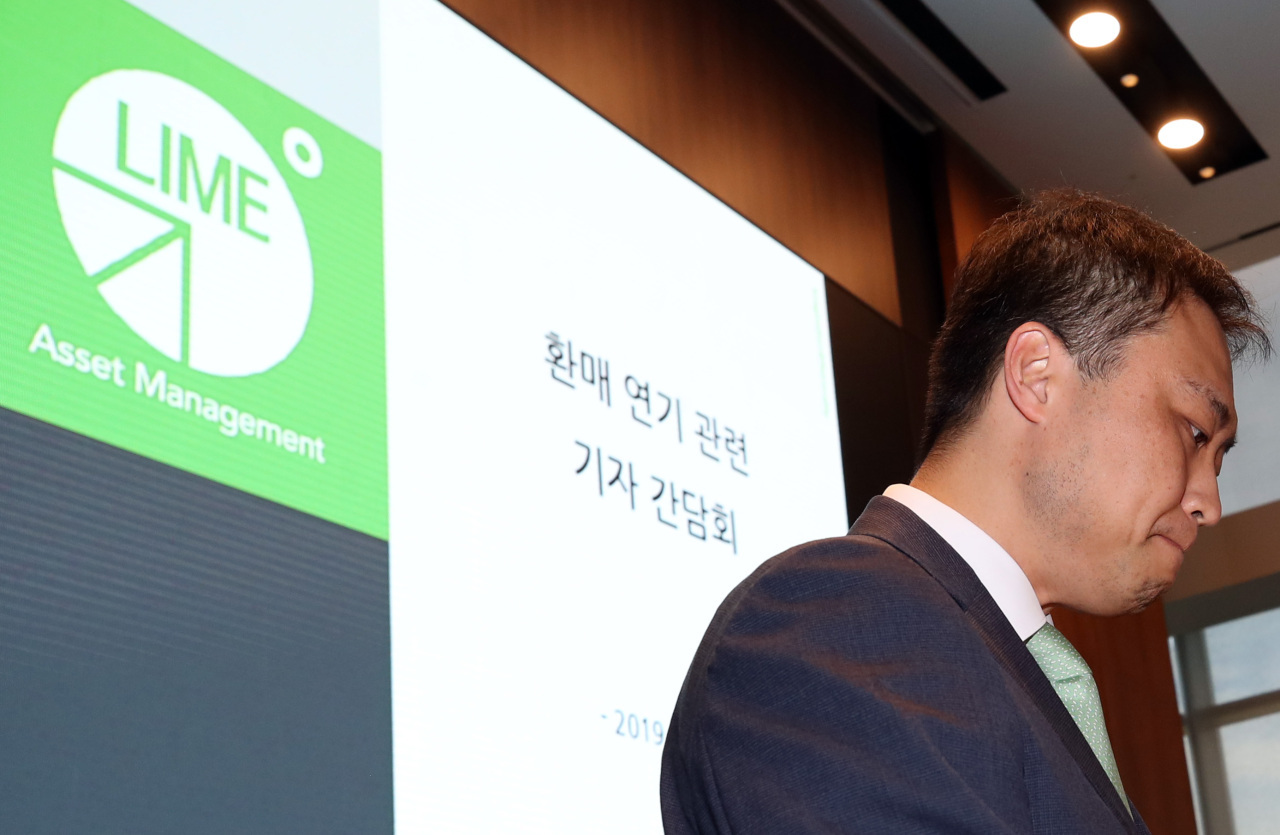Sales of private equity funds for individual investors dropped for the fifth consecutive month in November, amid growing distrust in the aftermath of damages incurred by risky derivatives-linked funds sold by banks and asset management firms, a local self-regulatory organization said Wednesday.
According to the Korea Financial Investment Association, local banks sold a combined 24.1 trillion won ($20.9 billion) of private equity funds, down by 600 billion won, or 2.4 percent, in November from the previous month.
 |
Lime Asset Management CEO Won Jong-jun speaks at a press conference on Oct. 14 in Seoul. (Yonhap) |
After hitting a monthly record of 27 trillion won in June, sales have decreased since. The figure fell by 38.2 billion won in July, 589.3 billion won in August and 683.9 billion won in September. In October, the on-month drop marked nearly 1 trillion won.
Market analysts said the huge financial losses incurred by DLF products sold by KEB Hana Bank and Woori Bank had deterred individual investors from putting money in risky financial instruments.
“Private equity fund operators, especially those who have just entered the market, will likely face difficulty in attracting investments,” said Choi Chang-gyu, an analyst from NH Investment and Securities.
The DLFs, which track underlying assets including interest rates and currency values, face the risk of losing the full principal while promising higher returns than low-risk investment options like bank savings.
Woori Bank sold some 401.2 billion won in DLFs while KEB Hana Bank sold 387.6 billion won of the financial products. The combined sales accounted for nearly 96 percent of all DLFs sold in Korea. Some who invested in a derivative product tied to German 10-year government note yields lost 100 percent of their principal as the yield on the benchmark dropped below minus 0.6 percent. The product had been designed to start shedding the principal when the yield rate dropped below minus 0.3 percent.
Some analysts said an alleged fraud case surrounding Korea’s largest hedge fund Lime Asset Management had rubbed salt into the wounds of the fund industry.
Lime Asset is accused of having failed to notify its investors of changes in the investment method of its fund, which was associated with a recent debacle linked to New York-based investment adviser International Investment Group.
The company invested some 240 billion won in one of IIG’s funds -- Structured Trade Finance Fund -- that targets trade finance portfolios in Southeast Asian and African regions.
The Korean company’s assets have been frozen since October after suffering a liquidity issue stemming from IIG’s troubled hedge fund.
In November, the US Securities and Exchange Commission revoked IIG’s license on allegations it had overvalued defaulted loans and concealed losses in its hedge fund. It is also accused of having used creative bookkeeping practices to show that the defaulted loans had been repaid.
By Kim Young-won (
wone0102@heraldcorp.com)








